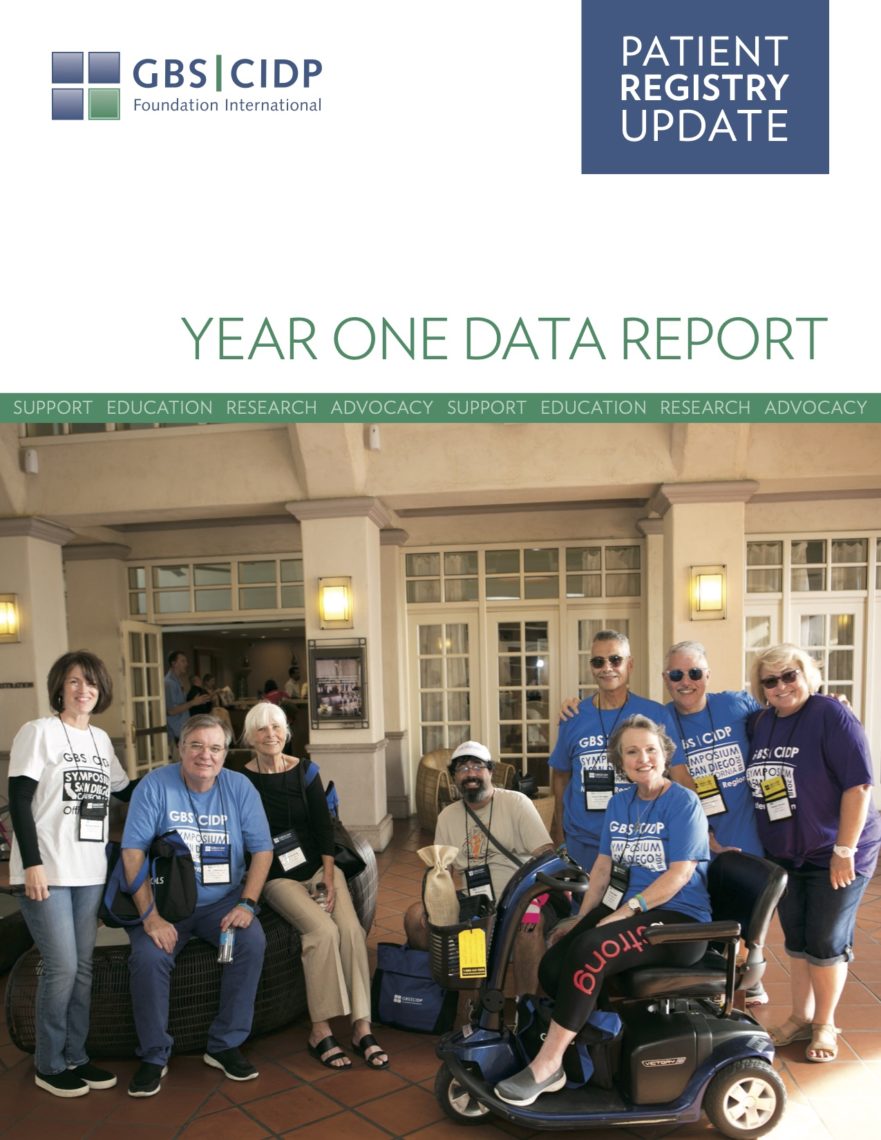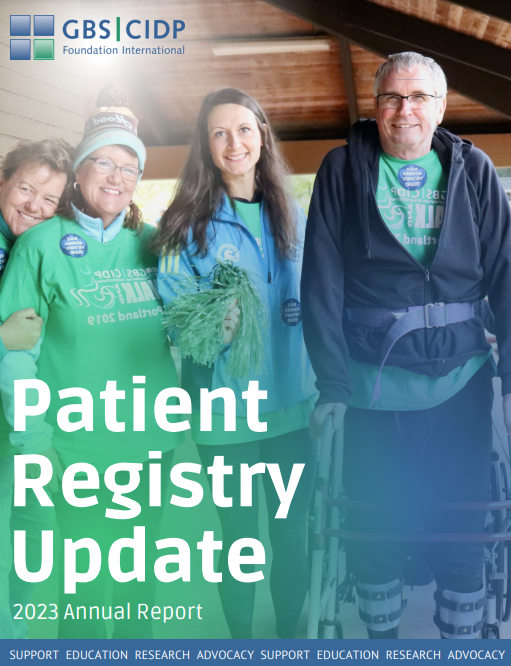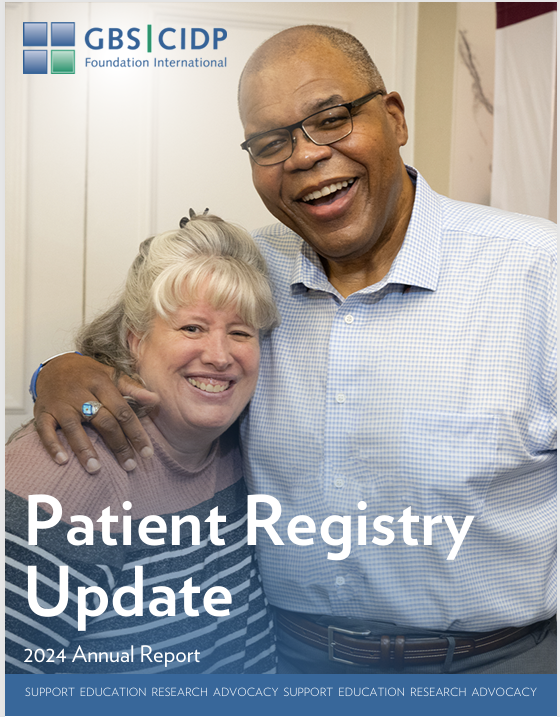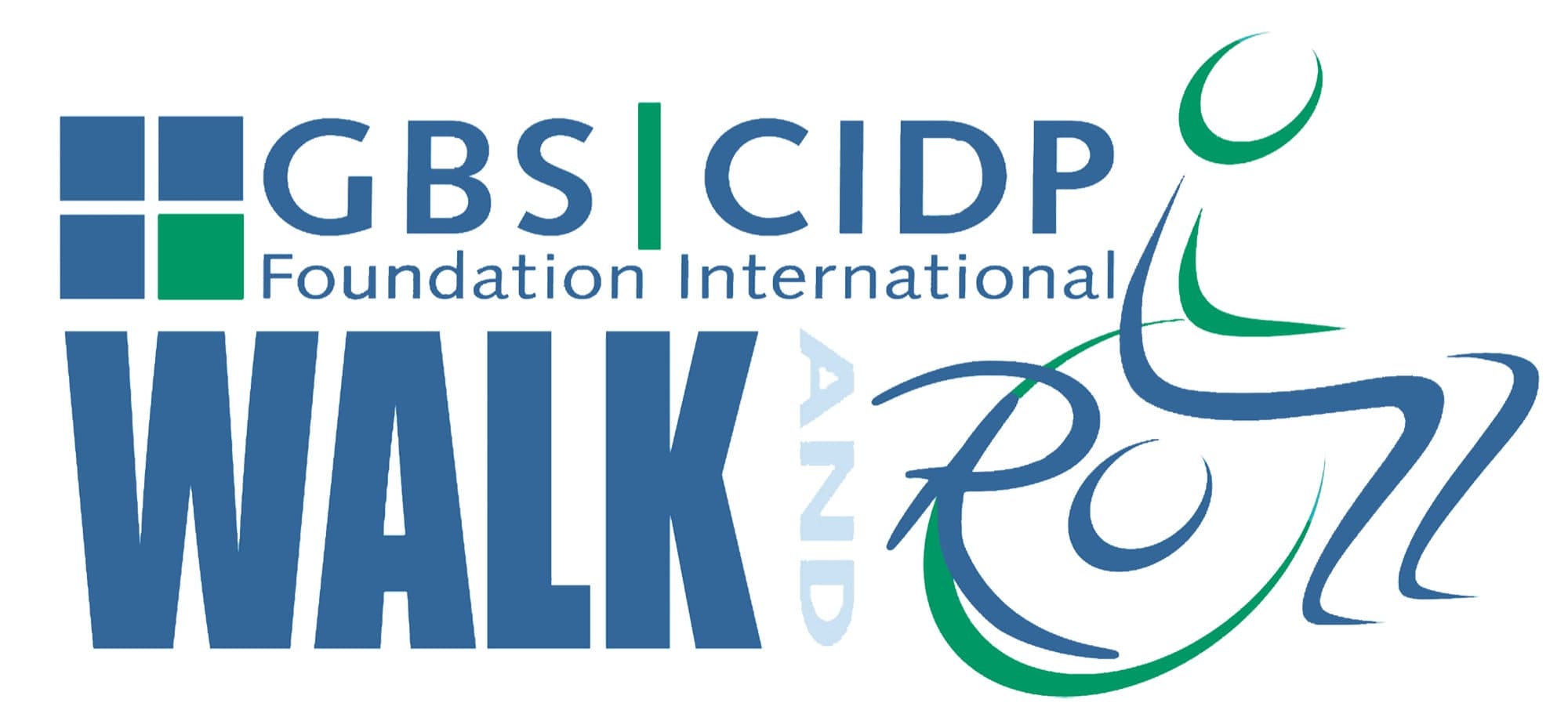How has a GBS, CIDP, MMN, or variant diagnosis affected you? Tell us about it!
Join the GBS|CIDP Foundation International Patient Registry, share your experience, and play a critical role in a better tomorrow for patients everywhere.
The GBS|CIDP Foundation International Patient Registry, consisting of patient-reported questionnaires, will allow health care professionals access to critical, de-identified patient data and a more in-depth understanding of the patient experience. This unique collection of data can be critical for the pursuit of medical advancements and the development of patient resources.
The registry is hosted in partnership with the National Organization for Rare Disorders (NORD); an independent non-profit patient advocacy organization dedicated to individuals with rare diseases and the organizations who serve them. Studies of these conditions may take years to finish, but patient-reported registries provide power in numbers! The Foundation will provide periodic updates and results with the discoveries made possible with this impactful data.
If you are a patient, or the primary caretaker of a patient living with GBS, CIDP or a variant of the condition, we encourage you to share your experience, enroll in Patient Registry, and help us get a better understanding of the rare patient experience!
Not sure where to begin?
Patient Registry Annual Report
GBS 2024 Special Report
Frequently Asked Questions
What is a patient registry? What is a longitudinal study? What is a Natural History Study?
A patient registry is a collection of standardized information about a group of patients who share a condition and is used for a variety of purposes such as conducting natural history studies and supporting disease specific clinical trial recruitment. The GBS|CIDP Patient Registry is a longitudinal and natural history study meant to track variables that correlate with the conditions we serve and the outcomes possible. The goals of the GBS|CIDP Patient Registry are to:
- Conduct a prospectively planned natural history study that will result in the most comprehensive understanding of GBS|CIDP and variants of the condition, and its progression over time.
- Characterize and describe the GBS|CIDP population as a whole.
- Assist the GBS|CIDP community with the development of recommendations for standards of care.
- Assist researchers studying the pathophysiology of GBS|CIDP and variant of the condition.
- Assist researchers studying interventional outcomes.
- Support the design of clinical trials for new treatments.
What is a legally authorized representative (LAR)? Is there a cost to participate? Can data be collected worldwide? How Long does it take to enroll?
This study is open to anyone who has a GBS, CIDP, MMN, or related conditions, such as Anti-MAG. This study is completely free and available for participants anywhere in the world. Legally authorized representatives and reporters/respondents are encouraged to complete the surveys on behalf of the patient/study patient who are unable to do so on their own behalf.
Completing the registry can take 30-60 minutes, and all participants can log off and log back in to take the surveys in their own timeframe. Registrants will be notified when future surveys are posted.
How is the information stored? How is the patient registry maintained?
NORD, a 501(c)(3) organization, is a patient advocacy organization dedicated to individuals with rare diseases and the organizations that serve them.
The registry is maintained by NORD who hosts the registry on its cloud-based Platform and provides oversight, ongoing support of the system, and stores this registry’s data on its industry standard platform system. Together, we are committed to the identification, treatment and cure of rare disorders through programs of advocacy, education, research and patient support services. Learn more about NORD at https://rarediseases.org/.
According to the Mayo Clinic an IRB is, “[a] specifically constituted review body established to protect the rights and welfare of human subjects recruited to participate in biomedical or behavioral/social science research.”3 The oversight of an IRB ensures that an online natural history study that collects and shares patient data to advance rare disease research, is ethical and safe.
Who owns the data and will be able to use this data? What is a principal investigator? What are some risks of the study and how long will it last?
There are no risks of physical harm associated with participation in the study.
The study sponsor owns the identifiable and de-identifiable data, GBS|CIDP Foundation International. GBS|CIDP Foundation International decides how and with whom to share the data. A subset of the de-identified data collected across the NORD Registry Platform is available to NORD to support cross disease analysis and advocacy activities to members of the rare disease community as a whole.
In agreement with the standards set by NORD and the IRB, we plan to share de-identified data with any researcher who asks for it for a legitimate reason. The GBS|CIDP Foundation International in collaboration with the GBS|CIDP Foundation Patient Registry Advisory committee comprised of members of the GBS|CIDP Global Medical Advisory Board, clinical and research experts, will review requests for access to de-identified data from researchers. Investigators wanting to use the registry or contact participants will need to apply to the GBS|CIDP Foundation
Patient Registry Advisory Committee. The application will require information concerning: Principal Investigator, aims and hypotheses of the proposed research, and where the research will be performed, and how the research will be funded. The GBS|CIDP Patient Registry Advisory Committee will review and approve applications based on study quality, potential, and value to GBS|CIDP and variants of the condition
What is informed consent?
The Office for Human Research Protections (OHRP) states that, “…the informed consent process is the critical communication link between the prospective human subject and an investigator beginning with the initial approach of an investigator to the potential subject (e.g. through a flyer, brochure, or any advertisement regarding the research study) and continuing until the completion of the research study. […] The informed consent process involves three key features:
1. disclosing to potential research subjects’ information needed to make an informed decision;
2. facilitating the understanding of what has been disclosed; and
3. promoting the voluntariness of the decision about whether or not to participate in the research.”4
What types of data will be collected in the GBS|CIDP Patient Registry?
The data collected is uniform and includes but is not limited to:
- Socio-demographics
- Medical and diagnostics
- Treatment and disease progression
- Management of care
- Quality of life
- Mental Health





